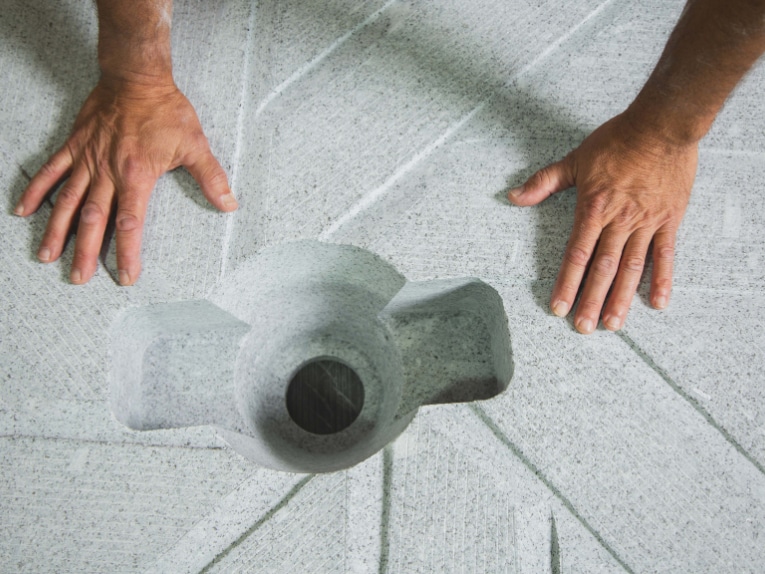
#Product Trends
What are the benefits of granite stone millstones?
A professional flour mill with solid natural granite stone millstones allows you to determine the operations to be performed on the grain according to the "dressing" applied to the millstones: grooves, lines, and bush hammering
A professional flour mill with solid natural granite stone millstones allows you to determine the operations to be performed on the grain according to the "dressing" applied to the millstones: grooves, lines, and bush hammering. Unlike grinding on reconstituted stones, which impose their working characteristics on the miller due to their "conglomerate" structure, grinding on striated natural granite stone millstones allows complete control over the grain grinding process.
The "Paradis" dressing applied to our natural granite stone millstones is inspired by the best practices of the great era of stone milling. We've drawn inspiration from the past to craft our own story, helping you produce excellent flours by ensuring cold grinding of your flours, a smooth grain process to preserve its nutritional and taste qualities. Ensure a cold grind of your flours on natural granite stone millstones for an excellent grain process. A well-dressed and well-maintained granite stone millstone will smoothly and controlledly grind the wheat germ and mill the endosperm in a single pass without heating.
What is the best stone?
Throughout history, various stones have been used to make millstones (see this interesting article on the subject). A good millstone should have these three characteristics:
High compression/density making it wear-resistant.
Insensitivity to alteration, whether it be dissolution, moisture action, or friction wear.
Heterogeneity.
We use several types of stones selected at our clients' request, from veins found in the Massif du Sidobre (Tarn - Ariège), the Vosges Massif, and even Spanish granite (Badajoz), known for its impressive density.







